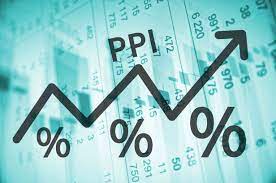Ghana’s Producer Price Inflation (PPI) for June 2025 has fallen sharply to 5.9 per cent, the lowest year-on-year rate since November 2023, the Ghana Statistical Service (GSS) has announced.
The drop marks a 4.2 percentage point decline from the 10.1% recorded in May 2025 and represents the fifth consecutive month of easing producer inflation. It also reflects a dramatic 19.7 percentage point fall from the 25.6 per cent registered in June 2024.
On a monthly basis, the PPI recorded a deflation of 1.4 per cent, indicating that, on average, producers received lower prices for their goods and services in June compared to May.
Presenting the data in Accra on Wednesday, July 16, Government Statistician Dr. Alhassan Iddrisu attributed the continued downward trend to sustained price reductions in Ghana’s largest production sectors.
“The data shows a steady decline, with the lowest producer inflation recorded since November 2023,” Dr. Iddrisu said. “Mining and manufacturing were the biggest drivers of this drop, along with easing costs in the transport and hospitality sectors.”
The Mining and Quarrying sector—Ghana’s largest contributor to the PPI with a 43.7% weight—saw inflation fall from 13.7% in May to 6.5% in June. Manufacturing, which accounts for 35% of the PPI basket, declined from 9.8 per cent to 7.6 per cent.
Notably, transport sector inflation dropped even further, from - 4.8 per cent in May to -7.0 per cent in June, while hotel and restaurant prices saw a dramatic reversal from a 6.5 per cent rise to a 2.7 per cent decline—representing a swing of 9.2 percentage points.
The Services sector saw a modest year-on-year inflation of 0.7 percent, while construction registered a rate of 6.0 per cent.
In the sub-sectors, mining support services recorded the highest inflation at 56.1%, while the extraction of crude oil and natural gas experienced deflation at -25.1 per cent. Within manufacturing, vehicle production led with 35.8 per cent inflation, followed by leather goods at 32.4 per cent. Petroleum refining, however, saw prices drop by 10.6 per cent.
Dr. Iddrisu urged businesses to “rethink pricing and renegotiate smartly,” warning that while falling input costs present opportunities, they may also tighten margins.
“Stay ahead by innovating, not just adjusting prices,” he advised.
He also called on government to “lock in macroeconomic stability, boost production, and support key sectors like mining and manufacturing with smart incentives to maintain momentum and protect jobs.”
To consumers, the GSS recommended careful spending. “Buy smart, question markups, and support brands that pass savings on,” the report advised.
As producer costs decline, the coming months could bring price relief for consumers—if businesses and retailers reflect those lower costs in retail prices.
The latest PPI release tracks changes in prices received by producers across Ghana’s key economic sectors, excluding consumer taxes and intermediary costs. The base year for the index is March 2020 to February 2021.
